Wood deck vs composite – which is right for you?
We weigh up the pros and cons of wood deck vs composite to help you decide the best option for your yard

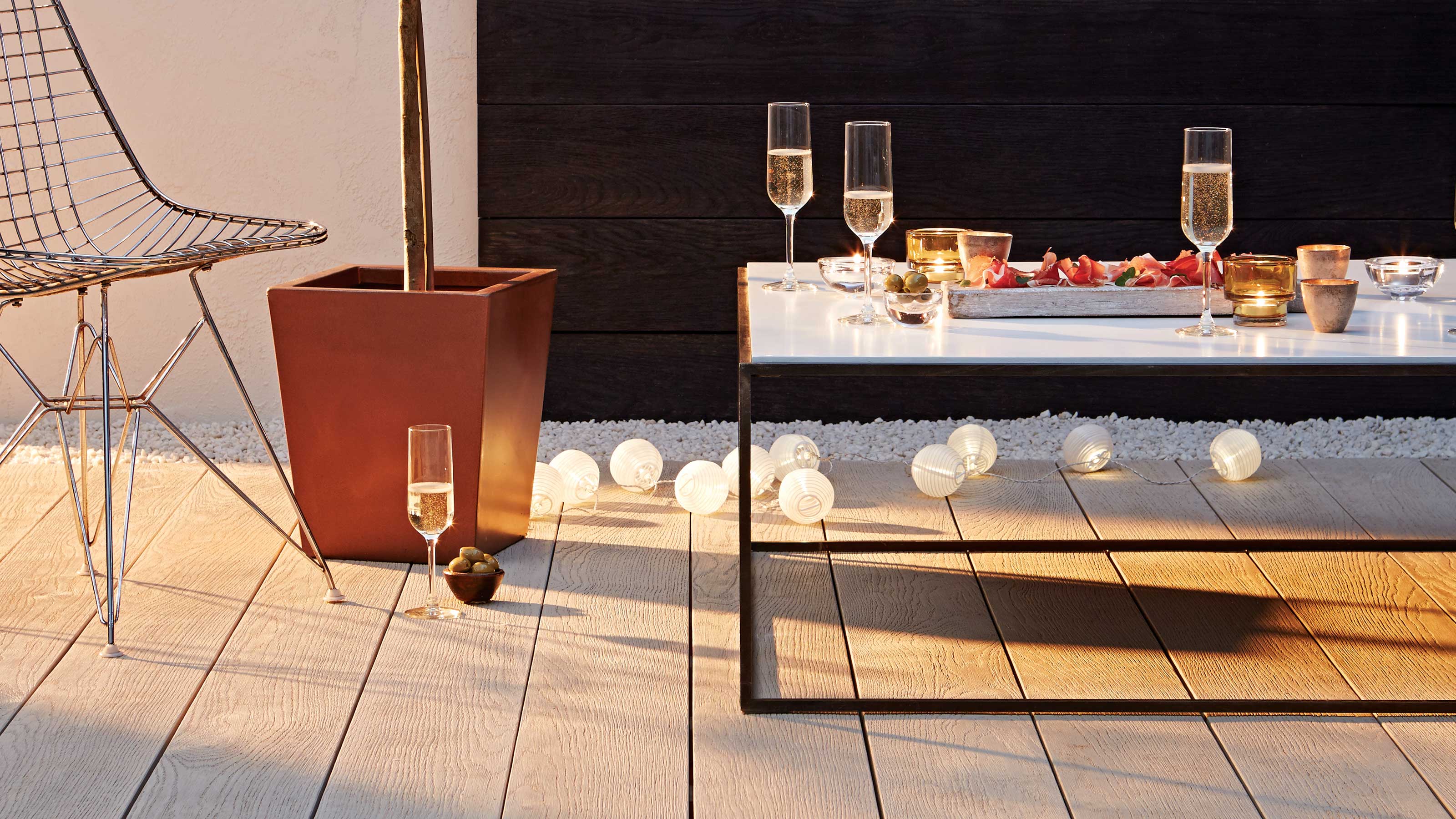
Wood deck vs composite – when choosing a new garden decking for your space, it's the first crucial decision you'll have to make. Natural timber is the classic choice, but nowadays, composite decking is proving to be a popular alternative in modern and classic schemes alike with its wide range of finishes. So, which is best for your garden?
To make the right decision, you'll need to know the pros and cons of each – and that's where we can help. We've rounded up plenty of info to help you compare the two. And once you've chosen the type of deck you want to go for, you can start planning the rest of your decking ideas – from lighting to furniture – to turn it into the ultimate outdoor living space.
Weighing up wood deck vs composite
Best decking or best composite decking? It's a tough one, but this guide will help you choose.
The pros and cons of choosing a wood deck for your garden
Its natural charm
Wooden decking is a go-to material for many due to its organic aesthetic. It oozes a rustic appeal that for some, simply can't be beaten, and it looks beautiful alongside all sorts of garden styles.
There are different types of wood to choose from, from softwoods (made from evergreen, coniferous trees such as pine) and hardwoods (from broadleaved trees, such as teak). And, although there aren't a huge variety of timber hues, you can use always use a tinted stain or lick of paint to customize it and make it suit your garden color scheme.
Generally cheaper than composite
When planning one of these outdoor features, you'll probably want to factor in how much decking costs. Most people would agree that timber decking's biggest plus point is its reduced price in comparison to composite designs. This is especially the case with softwood decking, which tends to be the go-to for those looking for a budget-friendly option.
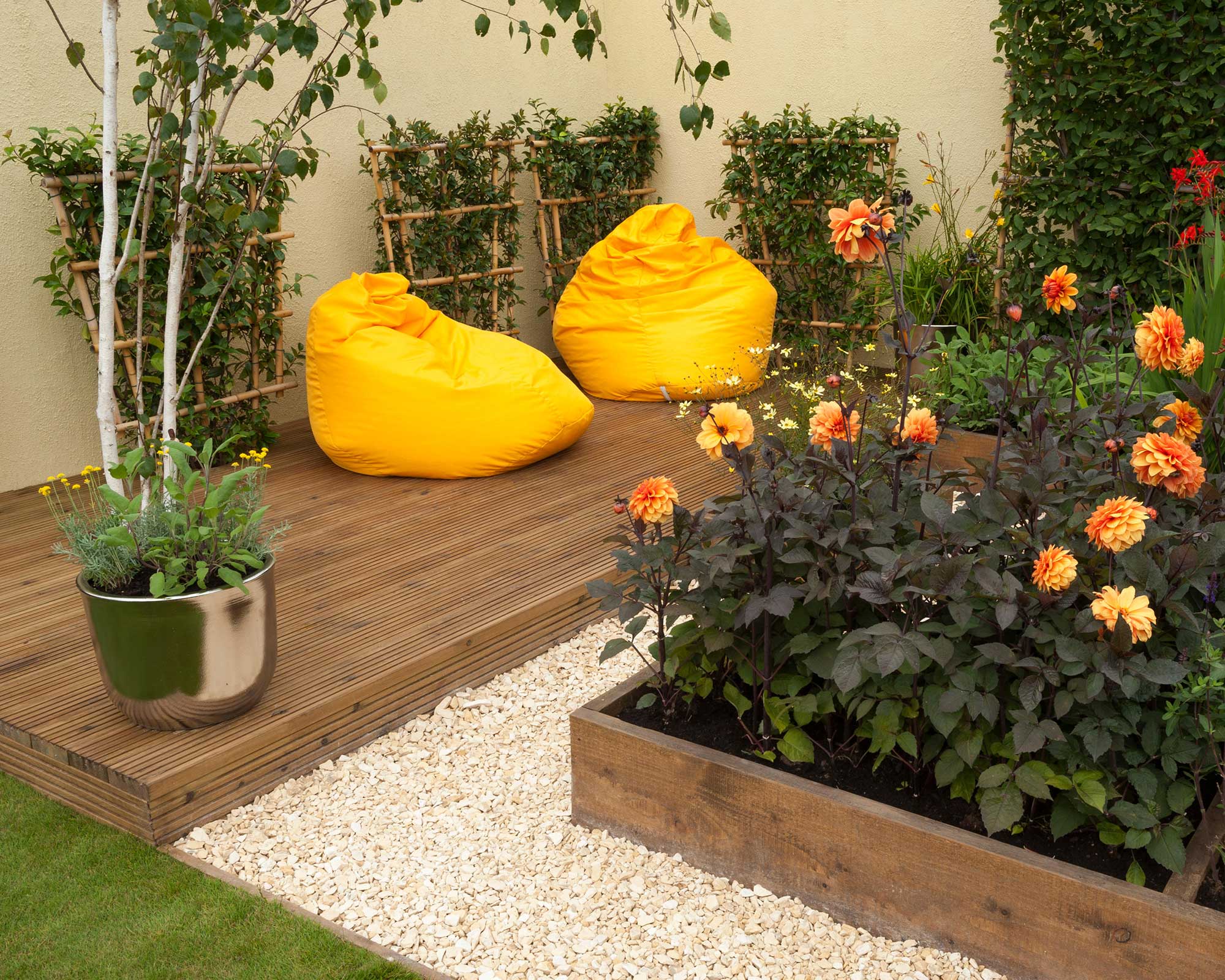
Degrades over time
Although cheaper, timber decking has the downfall of degrading. Over time, adverse weather can lead a deck to rot, resulting in the need for replacement. However, this can be slowed by regular cleaning and giving it an annual coat of a weatherproof, protective sealant. If you're looking for low maintenance garden ideas, this does mean timber decking falls short in comparison to composite designs.
If you do go for timber decking though, make sure you opt for a product that has a long guarantee. Opting for pressure-treated woods can also prolong the life of your decking.
More slippery underfoot
Timber decking tends to be more slippery underfoot in wet or icy conditions due to wood's natural tendency to absorb moisture. Wood is more susceptible to algae growth, which can also pose a risk of slipping, as notes the Millboard team. However, regular maintenance can minimize this problem.
For these reasons, wooden decking may be less suitable for a pool deck or in family gardens where safety is a priority.
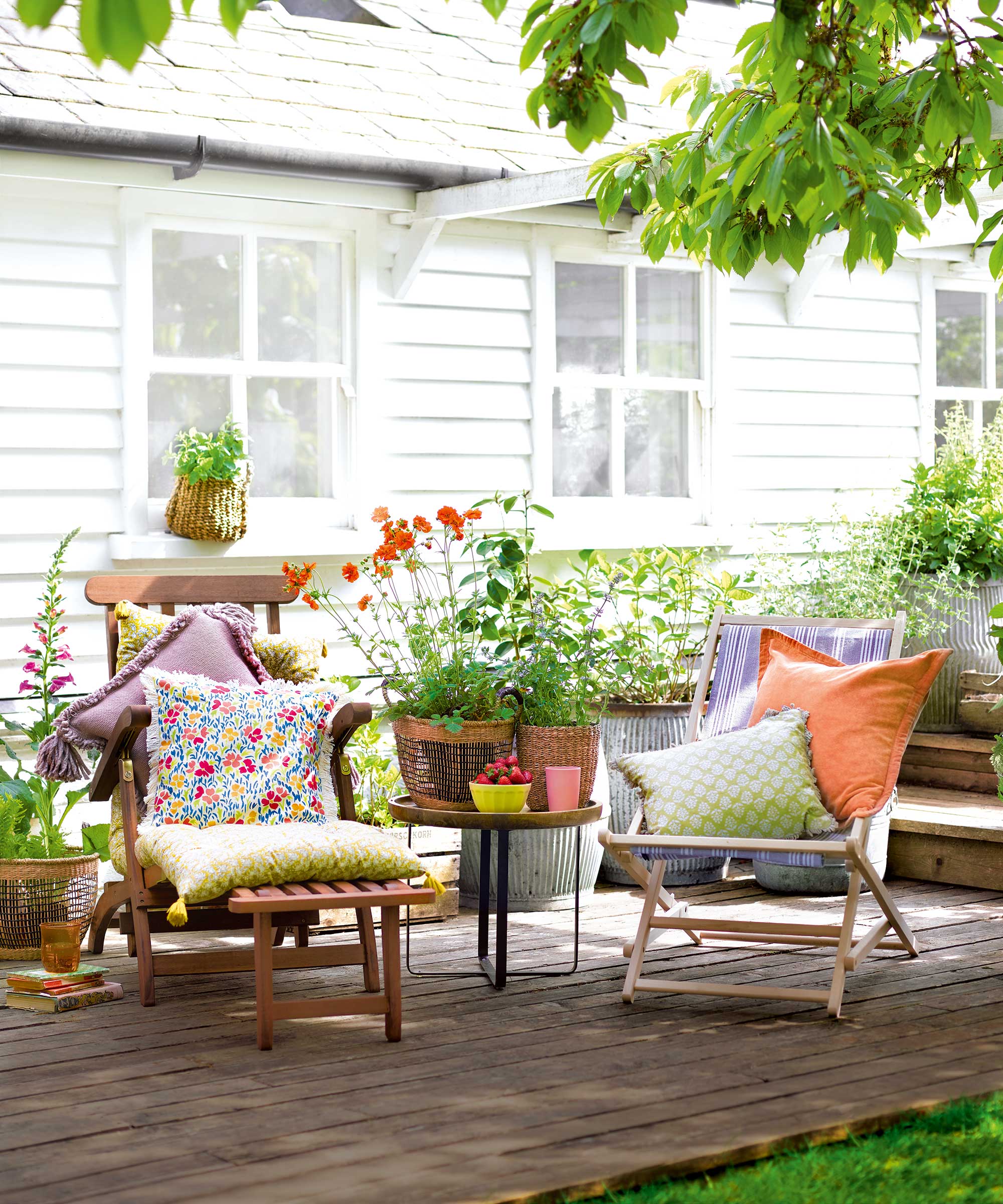
The pros and cons of choosing a composite deck for your plot
Much less maintenance
Composite decking is generally made from a mix of wood fibers and plastic (which is often recycled – good news for those looking to create a more sustainable garden). The biggest plus point of it has to be its easy-care nature. As Millboard says in regards to its products, which are made from a resin mineral composition, there's 'no sanding, painting, staining, or oiling – ever!'
The team also says that their decking only requires occasional cleaning. Our dedicated guide on how to clean decking is full of useful tips for the task.
Another benefit of many composite materials is that they contain no tannins, unlike timber, meaning they won't stain any of your deck furniture.
More grip
As we mentioned before, ill-maintained wooden decking can attract algae growth and leave homeowners susceptible to slips and falls in inclement weather. Composite, on the other hand, is often specifically designed with a non-slip finish underfoot, allowing for safer use.
For instance, with Millboard's decking, the unique high-grip Lastane surface of the boards has been tested to achieve a low-slip potential, providing better performance than normal softwood timber, especially in the wet.
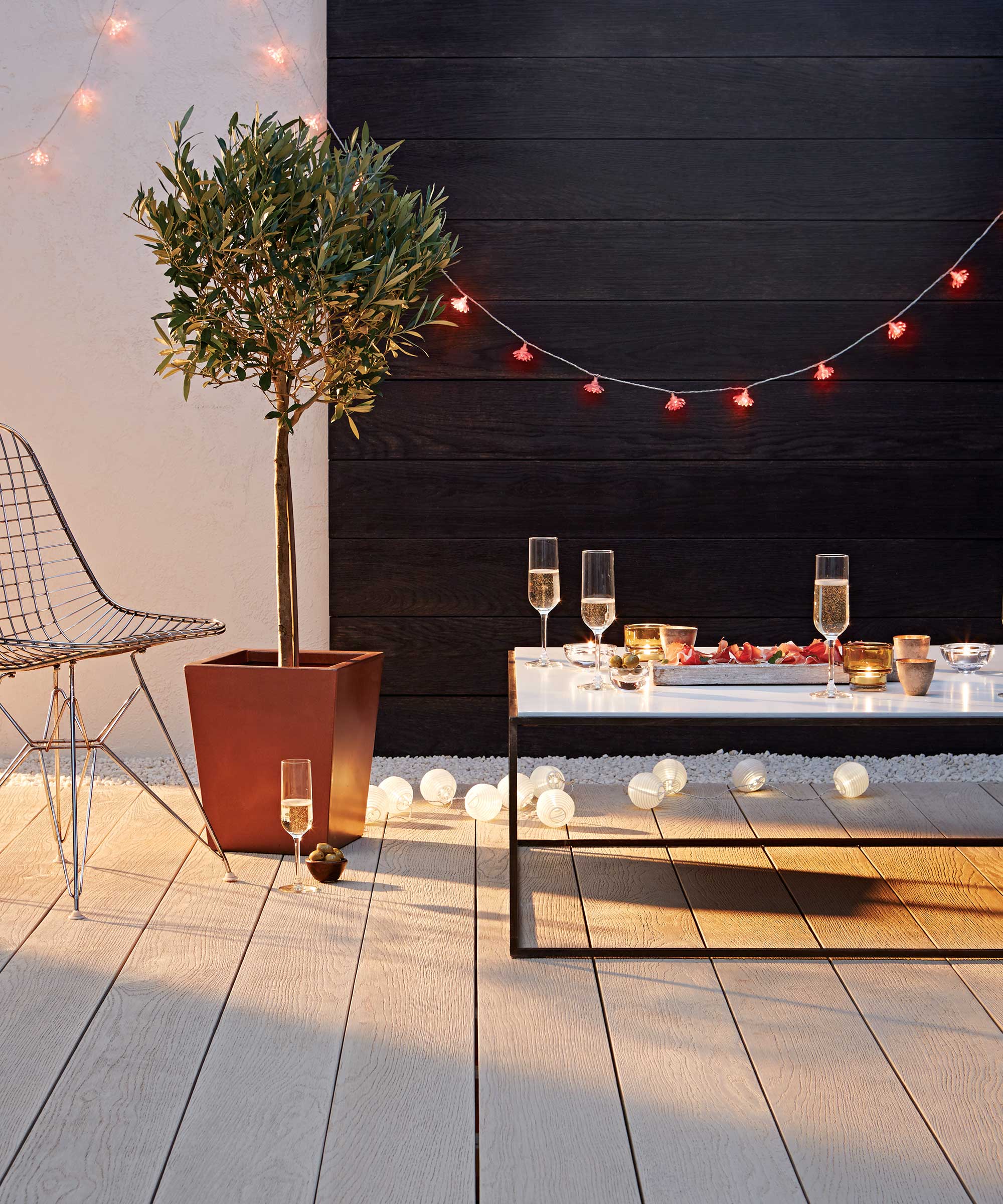
Multiple finishes available
These days, composite decking comes in a wide variety of finishes. These range from sleek, gray styles that are perfect for modern gardens, to rustic, wood-toned designs that look just like real timber. This means there is more opportunity to get creative and find a product that suits your aesthetic, without going through the hassle of having to stain or paint it yourself.
Expensive – but worth it
Investing in composite deck ideas tends to be a bigger splurge than opting for softwood timber, so it isn't always suitable for those on a tight budget. However, its enhanced durability and resistance to fading, rotting, scratches, and warping is worth the higher initial cost, as you are likely to save money in the long term on replacements and maintenance materials.
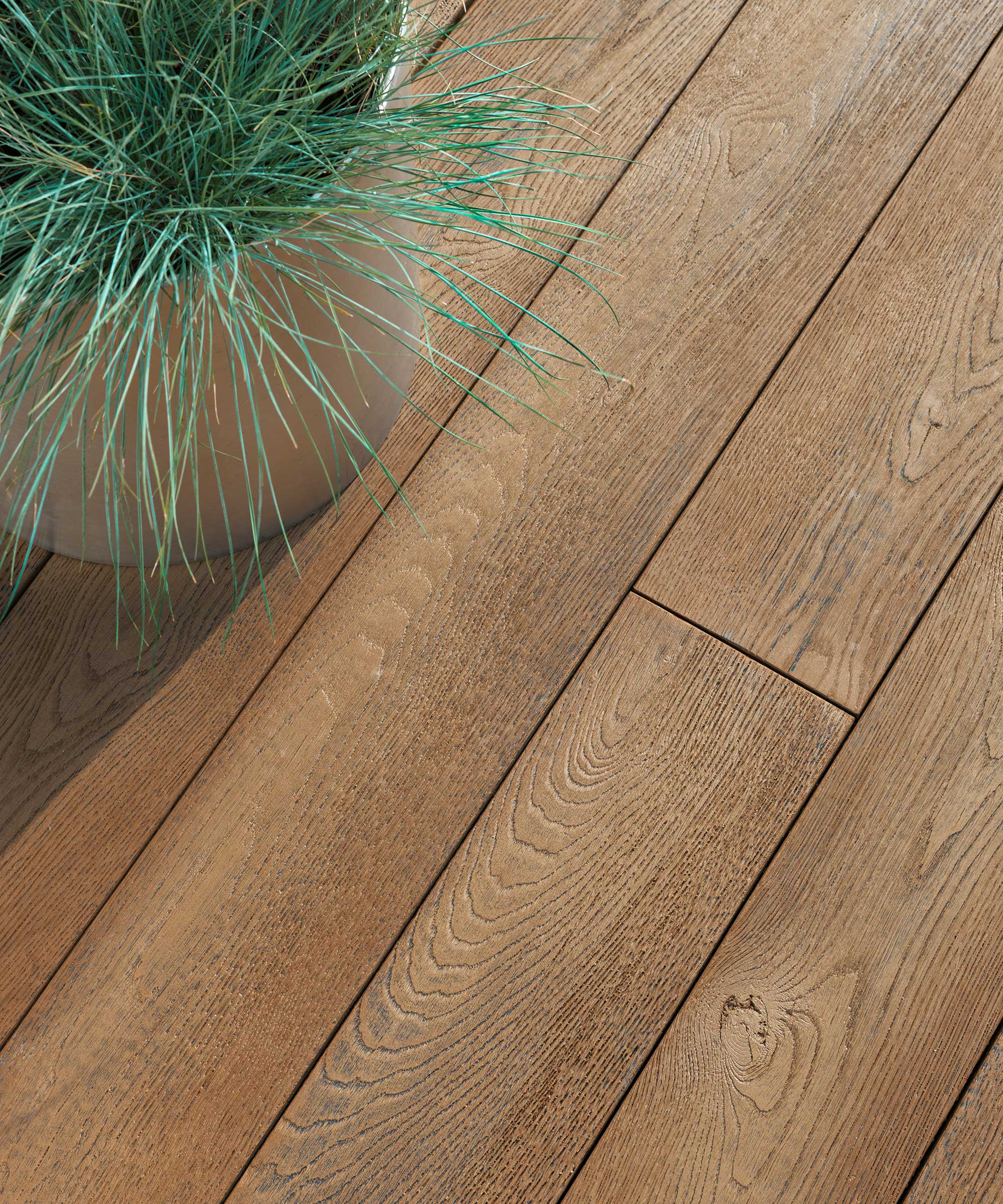
Overall – we would have to say that composite decking is the winner here, if your budget allows, due to its durability, range of finishes, and ease of maintenance. Plus, it can look just as natural as real timber designs.
So, if you're looking for new landscaping ideas to upgrade your outdoor space, and need a stable base for your seating setup, then it's definitely one to consider for the list.

The garden was always a big part of Holly's life growing up, as was the surrounding New Forest where she lived. Her appreciation for the great outdoors has only grown since then. She's been an allotment keeper, a professional gardener, and a botanical illustrator – plants are her passion.
